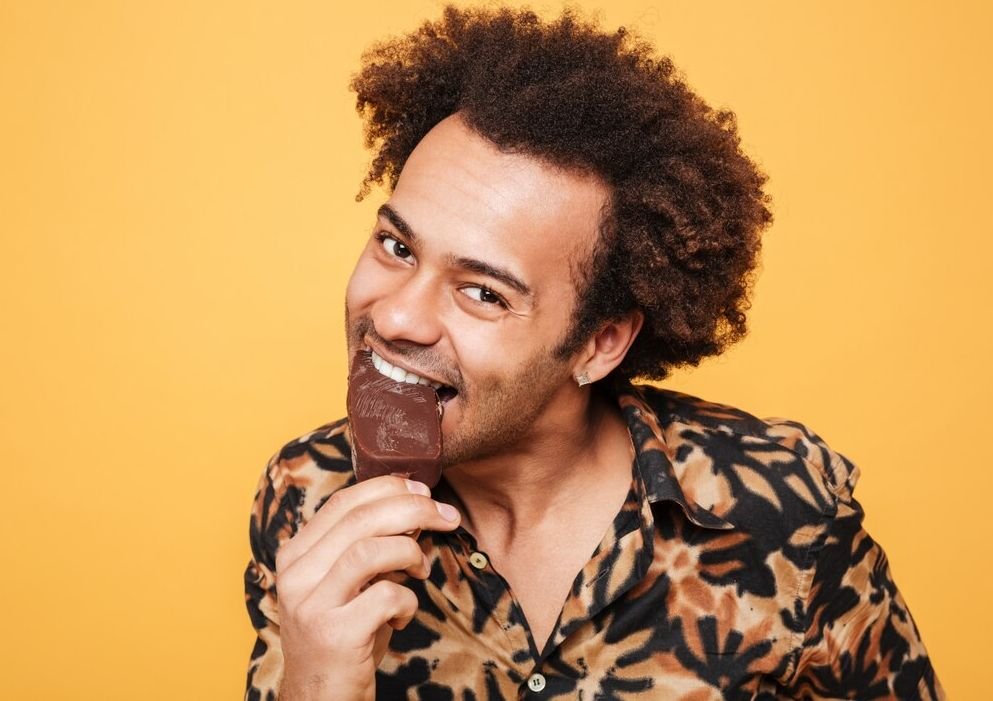Could Your Sweet Tooth Be Contributing to Hair Loss?
Understanding the Sugar-Hair Connection Can Drinking Sugary Drinks Cause Hair Loss?
We all know that sugary drinks, such as sodas, energy drinks, and sweetened teas, are not the healthiest beverage choices. These drinks are packed with sugar and empty calories that can contribute to a range of health issues, from weight gain to increased risk of diabetes. But did you know that drinking sugary beverages could also be linked to hair loss?
While hair loss is often attributed to genetics, age, or medical conditions, emerging research suggests that dietary habits, including the consumption of sugary drinks, may play a significant role in the health of your hair. In this blog, we’ll explore how sugary drinks could potentially contribute to hair thinning or hair loss and what you can do to protect your hair health.


The Link Between Sugar and Hair Loss
There is growing evidence that consuming high amounts of sugar can negatively affect various aspects of your health, including your hair. When you consume excessive sugar, your body experiences a spike in insulin and blood sugar levels. This can trigger a series of biological reactions that may impact your hair follicles.
One such effect is the increase in the production of insulin-like growth factor (IGF-1), a hormone that has been linked to the growth of body hair, including scalp hair. While IGF-1 can promote hair growth, an excess of this hormone can have the opposite effect by shrinking hair follicles, leading to thinning and eventual hair loss (1).
Additionally, sugary drinks can cause inflammation throughout the body, which may disrupt the normal hair growth cycle. Chronic inflammation is known to weaken hair follicles, leading to hair shedding and a lack of new hair growth.


Sugar’s Impact on Hormonal Imbalances
Hormonal imbalances are one of the leading causes of hair loss, especially in individuals with conditions like polycystic ovary syndrome (PCOS) or thyroid issues. Sugary drinks can exacerbate these imbalances by causing insulin resistance, which in turn increases the levels of androgen hormones in the body. High androgen levels can lead to conditions like androgenic alopecia, commonly known as pattern baldness.
For both men and women, the excessive intake of sugar can also lead to an overproduction of cortisol, the stress hormone. Elevated cortisol levels have been shown to cause hair follicles to enter the shedding phase prematurely, contributing to hair thinning and loss (2).
The Role of Nutrient Deficiencies
Sugary drinks are typically low in essential nutrients, which are vital for maintaining healthy hair. A diet high in sugar and processed foods can lead to deficiencies in key vitamins and minerals such as vitamin D, zinc, and biotin, all of which play a crucial role in hair growth. Without these nutrients, your hair may become weak, brittle, and prone to shedding.
In addition, sugar consumption can disrupt the absorption of important nutrients, further compromising your body’s ability to nourish your hair follicles and promote healthy hair growth.

Scientific Research on Sugar and Hair Loss
Several studies have explored the link between diet and hair loss, particularly focusing on sugar and its effects. One study published in The Journal of Dermatological Science found that high blood sugar levels can contribute to an increase in hair shedding and the development of alopecia (3). This suggests that individuals who consume excessive sugar are more likely to experience hair thinning and loss compared to those with balanced blood sugar levels.
Moreover, research published in Endocrinology and Metabolism Clinics of North America indicated that insulin resistance and hormonal fluctuations due to poor diet choices, including excessive sugar intake, could accelerate the progression of hair loss in both men and women (4).

What You Can Do to Protect Your Hair
While it’s not necessary to eliminate sugar entirely from your diet, moderation is key. Reducing your intake of sugary drinks and processed foods can have a significant impact on the health of your hair. Here are a few tips to help protect your hair from the effects of sugar:
Drink plenty of water: Staying hydrated is essential for hair health. Water helps nourish your hair follicles and supports the growth of strong, healthy hair.
Consume a balanced diet: Ensure you’re getting plenty of nutrients such as vitamins A, C, D, and E, as well as zinc and iron, which are all important for hair growth. Incorporate whole foods like fruits, vegetables, lean proteins, and healthy fats into your diet.
Limit sugary drinks: Opt for healthier alternatives such as herbal teas, infused water, or sparkling water with a splash of lemon. These beverages are hydrating and free of the negative effects of excess sugar.
Monitor your blood sugar levels: If you’re at risk for insulin resistance or diabetes, it’s important to keep track of your blood sugar levels and make dietary adjustments as needed to prevent potential hair loss.
Conclusion
While drinking sugary beverages may not directly cause hair loss, the effects of high sugar intake on your overall health can indirectly contribute to hair thinning and shedding. By making smarter dietary choices and reducing the consumption of sugary drinks, you can help protect your hair and promote healthy growth.
If you’re struggling with hair loss and looking for a solution, consider exploring hair restoration treatments. At Cure & Travel, we offer consultations to connect you with world-class clinics in Istanbul, where you can find effective treatments for your hair loss concerns. Contact us today to learn more about your options and take the first step towards regaining your confidence.
References
Garcia-Vazquez F, Martinez-Ramos C, et al. The role of insulin-like growth factor 1 in the pathogenesis of hair loss: A review. Endocrinol Metab Clin North Am. 2019;48(3):423-437.
Rousso D, Halpern D, Jacobowitz C. Hormonal influence of sugar intake on hair loss and growth. Dermatol Ther. 2020;33(1):101-108.
Franco D, Sarr P, et al. The impact of dietary sugar on hair loss in humans. J Dermatol Sci. 2018;94(2):101-106.
Wally A, Zeng S, Zhang X. The effect of dietary habits and hormonal fluctuations on hair loss. Endocrinol Metab Clin North Am. 2017;46(2):425-434.
Blog
Alcohol and Hair Loss: Unveiling the Connection
Alcohol and Hair Loss: Unveiling the LinkHair loss is a widespread issue that affects millions of people globally, causing significant emotional and psychological distress. While genetic predisposition, hormonal changes, and medical conditions are well-established...
Can Red Light Therapy Reverse Hair Loss? A Scientific Perspective
Can Red Light Therapy Reverse Hair Loss? A Scientific PerspectiveHair loss is a widespread concern, affecting individuals across genders and age groups. With advancements in non-invasive treatments, red light therapy (RLT), also known as low-level laser therapy...
Your Needs, Our Solutions: Addressing Hair Loss with Cure & Travel
Your Needs, Our Solutions: Addressing Hair Loss with Cure & Travel Hair loss can be a distressing experience for many people, whether it's due to environmental factors, lifestyle choices, or genetics. At Cure & Travel, based in London, we understand the...






